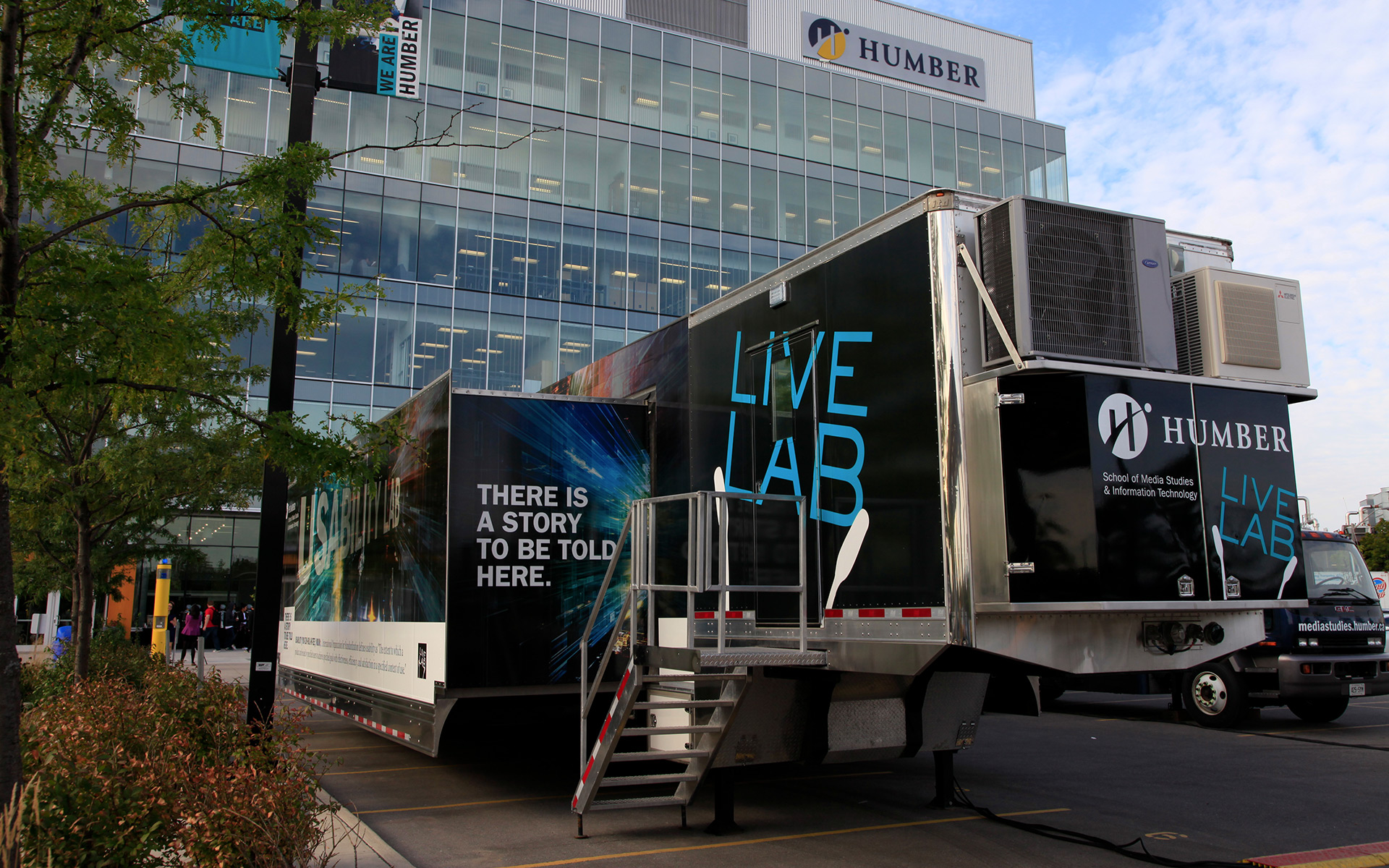
Humber College Creates Unique Testing Environment Using Extron SMX and XTP Systems
Humber College in Toronto, Ontario, is one of Canada’s leading post-secondary institutions, serving 27,000 full-time and 56,000 continuing education registrants. The School of Media Studies & Information Technology offers more than 30 programs in web design and development, multi-media design, game programming, advertising and graphics, package design, photography, journalism, film & television, and broadcast television. A common requirement across this wide variety of studies is usability, which defines the user experience and ease of interaction with the content. Students receive hands-on instruction and work together to acquire real-world skills through the use of a state-of-the-art usability “live lab” that has the unique feature of also being mobile. Conceived of by Humber Technical Services, the lab’s custom design allows the content creators to observe user response in a controlled environment. The AV system, designed by consultant Applied Electronics of Mississauga, Ontario, includes Extron XTP Systems
®
and an
“Humber's Usability Testing Lab is a unique facility that was designed as a flexible learning and applied research space to accommodate a number of usability testing scenarios. These include being configured as a lecture hall to demonstrate a single usability test to a group, having five different teams simultaneously performing independent usability tests, and everything in between,” says Guillermo Acosta, Dean of the School of Media Studies & Information Technology at Humber College. “We required a system capable of effectively handling all of our scenarios, and Extron was able to provide a solution that fully satisfied our needs.”
Custom Lab for Usability Testing
The lab is a custom 48-foot (14.6-meter) trailer with a double-expanding width of 18 feet (5.5 meters). Built like a portable broadcast production facility, the trailer features full pop-ups, media, and an extensive AV system. An infrastructure of shielded CAT 6 twisted pair cable passes under the raised floor and within the walls, with the average run being 150 feet (45 meters). Many AV system components in the expanding sections were installed to pivot 90° for storage, while the remainder of the equipment was mounted under fixed tables. This customization allows the trailer to be shut down and secured for transport.
The floorplan features five usability testing booths and a large, central collaboration space with booth monitoring capabilities and enterprise-wide AV system control. Of the five testing booths, the first four are designed for independent use as training and concept testing workstations and the fifth offers comprehensive usability testing as well as monitoring options. Morae ® software by TechSmith™ is installed on the host servers, providing a usability testbed and basic user-experience reporting. Each booth offers keyboard and mouse control over its assigned server, and the server outputs HDMI to support a Planar ® Helium 24" touch screen monitor. The HDMI signals are made available for distribution to remote locations as well.
The collaboration space features a large conference table that is sectioned into five areas, referred to as Pods. Pod 5 is the instructor’s workstation, and provides touch control for the installation. “One requirement in the central collaboration space was the ability to dress or hide all of the cables that normally would be tucked away in a console,” says Michael Wright, Director of Technical Services at Humber College. “We solved this with careful selection of Extron products and mounting much of the AV equipment beneath the collaboration table.”
Humber designed the lab for flexibility and intuitive operation, equipping it with a wide variety of technologies to support usability testing at many different levels of sophistication.
We required a system capable of effectively handling all of our scenarios, and Extron was able to provide a solution that fully satisfied our needs.
KVM Routing with SMX Matrix & USB Extenders
To enable KVM host and peripheral extension, the installation includes the Extron SMX System MultiMatrix modular matrix switcher and USB Extender Series transmitters and receivers. The SMX 200 frame is populated with three SMX 84 USB matrix boards. USB signals generated at a testing station are sent to the SMX 200 using three pairs of the USB Extender, and additional pairs deliver the signals to the local computers. The design also allows video signals from a Logitech ® USB camera in the collaboration space to be switched for targeted distribution. The college particularly appreciated two features of this SMX solution. The 10 presets per SMX switching plane ensured easy setup plus reliable operation, and the single point of control through the SMX 200 simplified integration and system monitoring for Humber’s Technical Services team.
The SMX matrix switcher, sound system, control system, along with the computers and other source devices are rack-mounted within Booth 5, which is also known as the Super Booth. This booth provides the same training and testing capabilities as the rest, but offers additional functionality. A second host computer includes advanced usability testing software from OVO Studios ® . The software offers selective video recording, observational logging, and automated analysis with in-depth reporting. When not in use for usability testing, content and feedback data are also viewable on the booth’s three displays. This same material is distributed to the collaboration space for observation and analysis.
XTP System Provides High Speed Delivery of HDMI, Audio, and Control
To enable monitoring of booth activities from the collaboration space and to distribute AV content throughout the lab, the application uses an XTP system. Humber selected the Extron XTP CrossPoint 3200 modular matrix switcher for HDMI, audio, and control signal switching and distribution to the lab’s local and remote locations. Sources include multiple computers, cable and Apple ® TV receivers, GoPro ® Hero3 cameras, as well as a Sony ® Blu-ray Disc ® player, which is a shared resource. Extron DSC 3G‑HD A units convert transmissions from the 3G-SDI sources to HDMI, scaling SMPTE video resolutions to 1920x1200 for distribution via XTP ® . The matrix switcher is rack-mounted in the Super Booth with the SMX 200 and other AV equipment.
The XTP CrossPoint ® 32x32 matrix switcher is populated in a 20x20 I/O configuration, with XTP input and output boards that support HDMI and provide long-distance signal extension. In additional to content and testing results, it routes video from each booth’s GoPro cameras, a Mirametrix ® S2 Eye Tracker system, and Reflector ® mobile device presentation software material to any combination of displays within the collaboration space. According to the college representatives, this HDCP-compliant system was selected for its quick switching and built‑in capabilities, such as EDID management and advanced system monitoring. “Extron was selected for its proven quality, competitive pricing, and our own familiarity with their technologies,” says Wright. “We felt that XTP provided an integrated design that was easier to implement and with less programming requirements than other manufacturers’ matrix solutions.”
Content creators are able to view distributed video on any combination of the four 60" flat panel displays mounted side-by-side on an interior wall. The instructor also has the option of viewing content on the workstation monitor or sending the video to a Sharp ® Aquos 70" Smart Board mounted on the end wall. Extron DTP T HWP 4K 231 D decorator-style wallplates provide discreet HDMI signal extension from the GoPro cameras in each booth. To route AV signals from the matrix switcher and ensure that video is shown at the optimal resolution, an Extron XTP SR HDMI scaling receiver is mounted with each display. AV devices attached to the XTP and DTP extenders are controlled from the instructor’s workstation, Pod 5, at the collaboration table.
Audio follows video or can be broken out for independent distribution, depending on usability testing activities. Each XTP CP 4i HDMI board offers balanced/unbalanced stereo audio inputs, and accepts signals from up to four of the local computers. The analog audio signals are digitized to two-channel PCM digital audio for separate audio routing within the lab. Periodically, separate stereo audio is embedded into the signal stream for distribution alongside the video and control signals. Incoming audio signals can be switched to the XTP CP twisted pair output boards for distribution to remote locations. The single XTP CP 4o HDMI output board extracts two-channel PCM audio to support the sound system. These audio signals are delivered to an Extron XPA 2001-70V amplifier. The fanless, convection-cooled model provides 200 watts to the lab’s high impedance speaker system. Humber continues to appreciate the energy and cost savings achieved with this ENERGY STAR ® -qualified amplifier. When one or more content creators want to monitor a specific booth from the busy collaboration space, three Extron DA 6A distribution amplifiers enable the use of headphones, selectively.
An Extron XTP T USW 103 Three Input XTP Switcher with Integrated XTP Transmitter provides local switching between digital and analog laptops connected at Pod 5, and extends the selected source signals to the XTP CrossPoint 3200. Using the control port on the transmitter, bidirectional RS-232 and IR control signals are inserted alongside the AV signals for remote device operation. These signals as well as Ethernet can be sent up to 330 feet (100 meters) over the single twisted pair cable, which was quite sufficient for the distance requirements within the trailer. Control inserted with the XTP transmitters and receivers reduced the number of independent cables, saving cost, conduit space, and installation time. The low-profile transmitter was shelf-mounted under the table to maintain an uncluttered appearance.
Embedded in the table is an Extron Cable Cubby 202 Series/2 enclosure that provides connectivity for the instructor’s two laptops: one with HDMI output and the other with VGA and separate analog audio. The Cable Cubby® enclosure’s hidden, integrated clamp system simplified mounting for the installation team, and the removable cable pass-through bracket allowed easy integration of the XTP switcher. Instructors often comment on the convenience of the small magnet that holds the tilt‑up lid open on the enclosure and having a power outlet available at the table.
“We needed a collaborative lab space with the ability to route HDMI and KVM, in varying configurations, to and from any combination of locations,” says Wright. “The XTP system paired with the SMX provided the flexibility and capabilities we wanted for our mobile lab, and the Extron components fit easily into the available space.”
User-Friendly Control with TLP Pro Touchpanel
From Pod 5, the instructor is able to monitor and control AV functionality within each booth, as well as the collaboration space, using an Extron TLP Pro 1020M , a 10" TouchLink ® Pro Series touchpanel. It provides the flexibility to select between different live views, including from a booth’s GoPro camera and the Eye Tracker system, and sharing subject content plus testing feedback on any combination of displays. Program and live audio are also controlled from this single touchpanel. The wall-mount touchpanel is embedded flush to the table, so as not to be an obstruction during collaborative sessions.
This Pro Series touchpanel works with any Extron Pro Series control processor, and Humber chose the IPCP Pro 550 which is well-suited for this application. Aside from being more powerful than its predecessors, this IP Link ® processor features advanced security standards and Gigabit Ethernet. It also supports popular building management system protocols that allow centralized monitoring and control of mechanical and electrical systems, such as HVAC, power, fire, security, and the lab’s Lutron® lighting system. To set up the control processor, the team used Extron Global Configurator™ Plus software. Working in conjunction with the processor, Extron’s TLP Pro TouchLink touchpanel provides easy control of the lab’s extensive AV system.
Successful Results
The design, build, and installation of this mobile facility took approximately one year, primarily because of mechanical issues with the actual trailer rather than technical challenges. Since the winter of 2015, the usability lab has been utilized in several programs, including Web Development, Web Design & Interactive Media, Game Programming, Computer Programming, and Multimedia Design & Development. These were some of the first programs to incorporate usability studies into the curriculum. As part of the coursework for Broadcast Operations, the AV system also supports monitoring of the college’s mobile HD Truck. The lab is easily transported around campus as well as to the offices of Humber’s industry partners, which include companies that wish to evaluate and use designs and content developed by the college.
The lab has been so popular that the HVAC system was recently upgraded to allow additional audience members in the collaboration space. Humber is committed to student success through excellence in teaching and learning, and their unique, mobile usability lab is an embodiment of that commitment.
“Users are not intimidated by the lab’s advanced technologies because they don't know how complex the routing and switching really is,” says Michael Wright, Director of Technical Services. “Extron’s SMX and XTP Systems provided flexibility and high speed signal routing, yet allowed us to give our instructors a simple-to-use interface.”

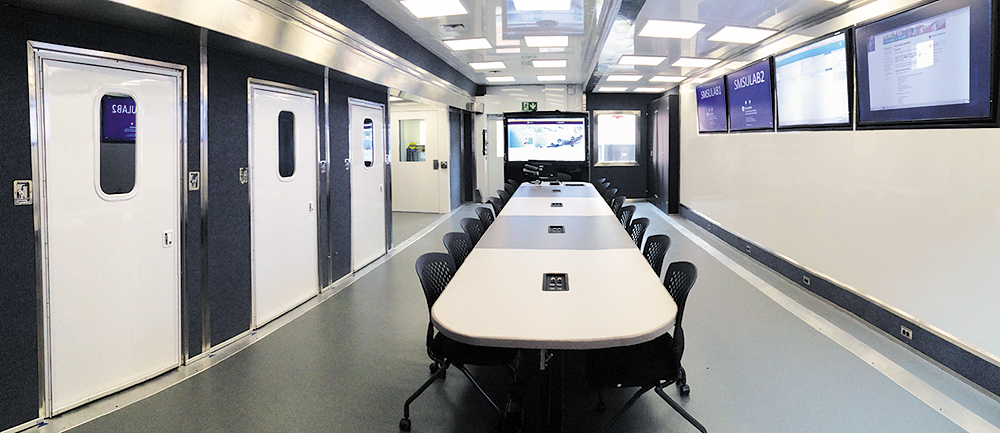
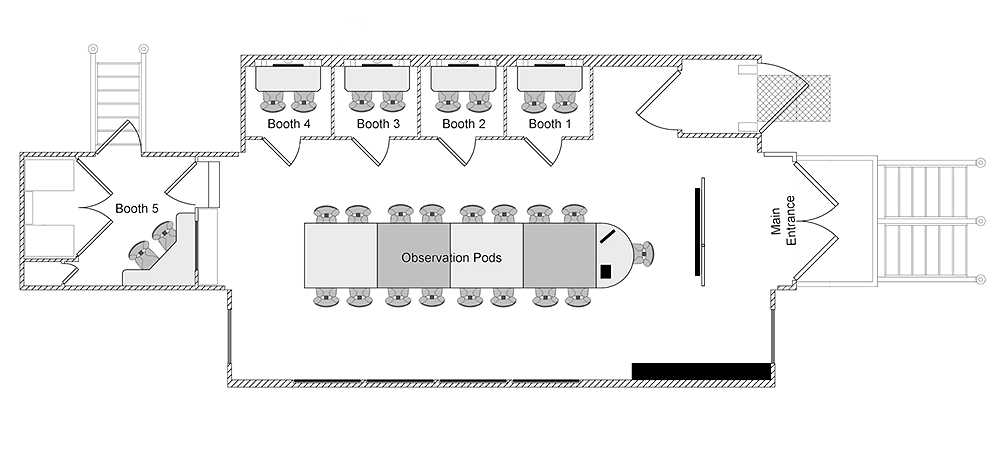
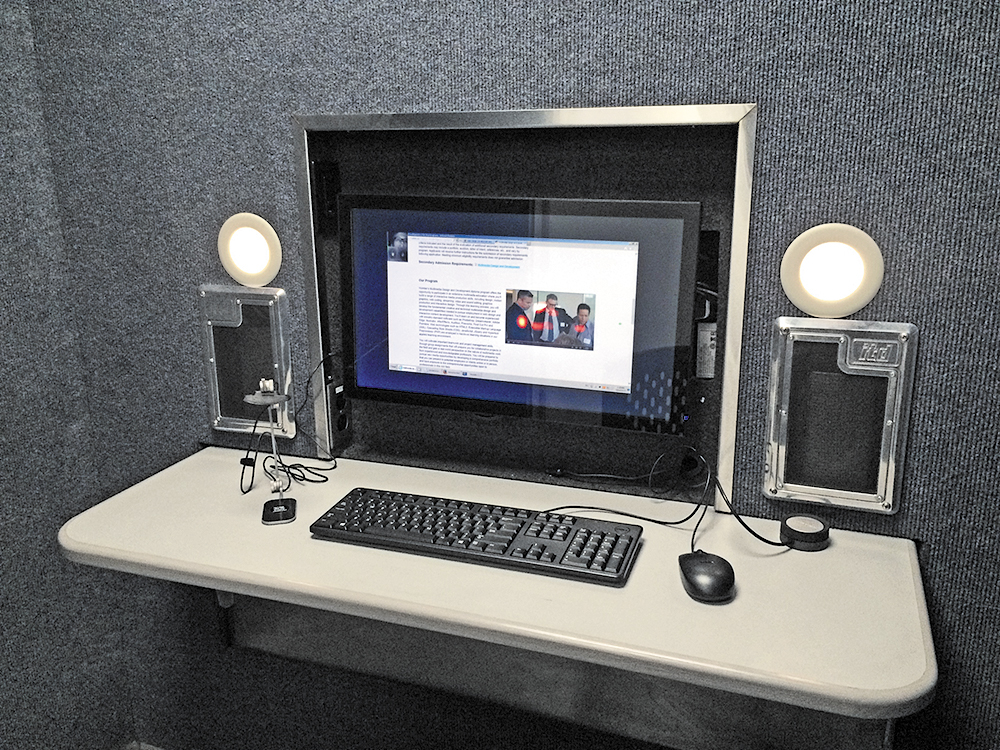
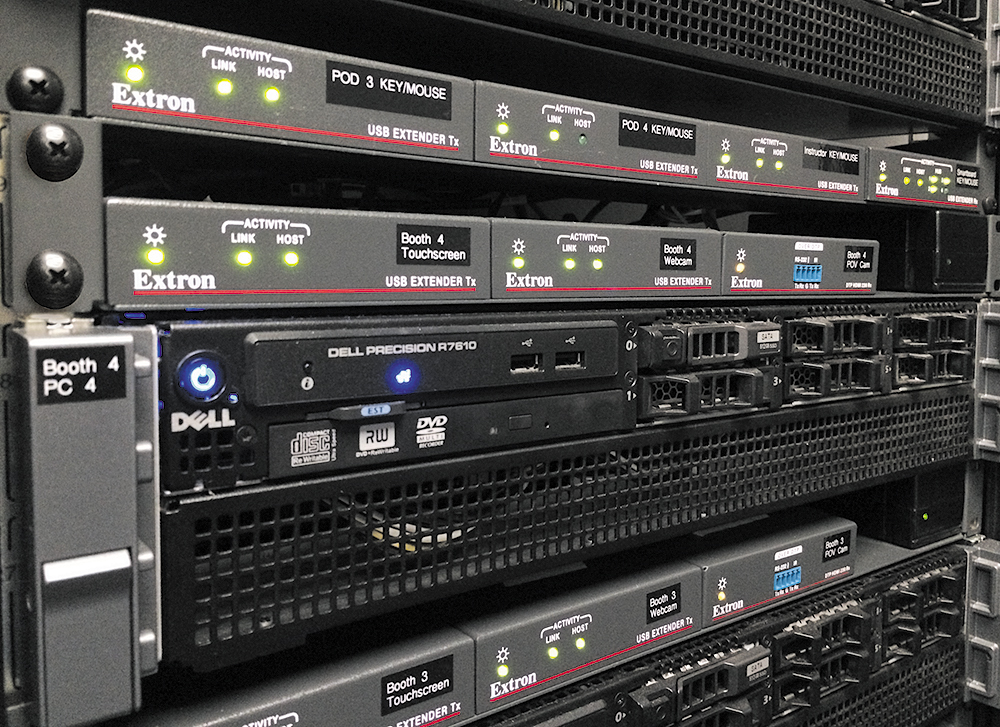
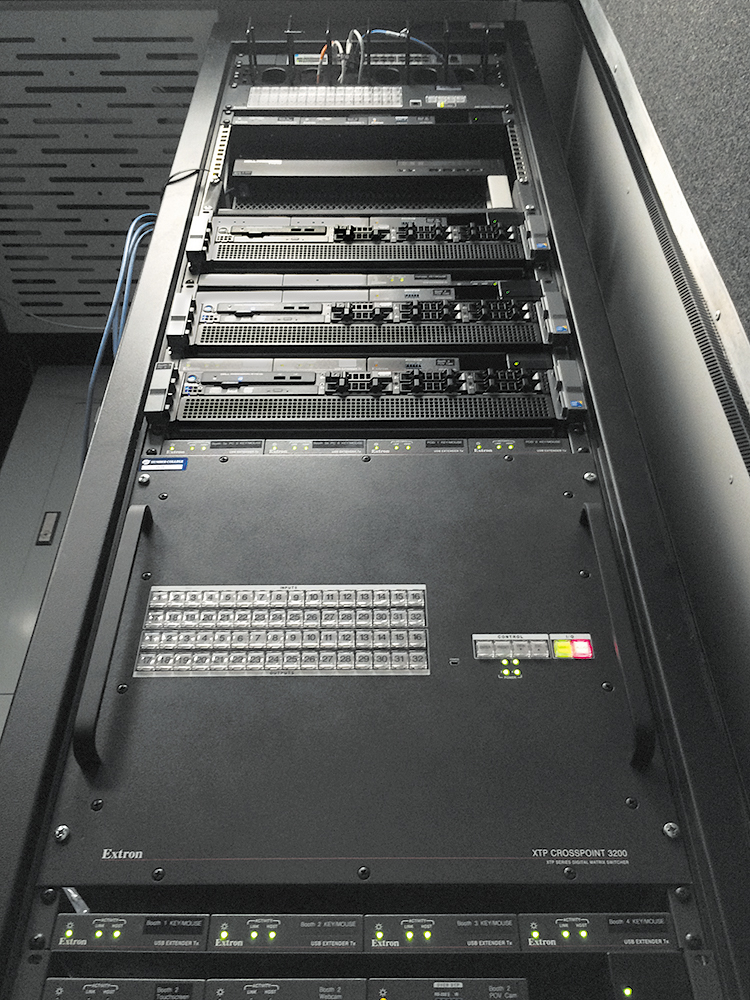
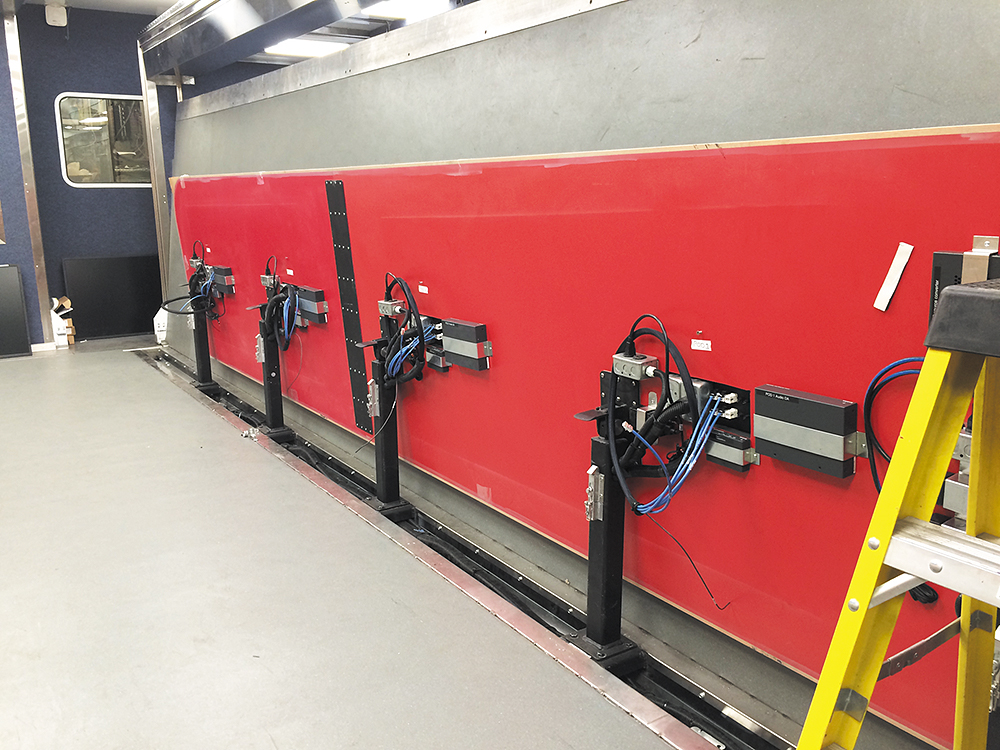
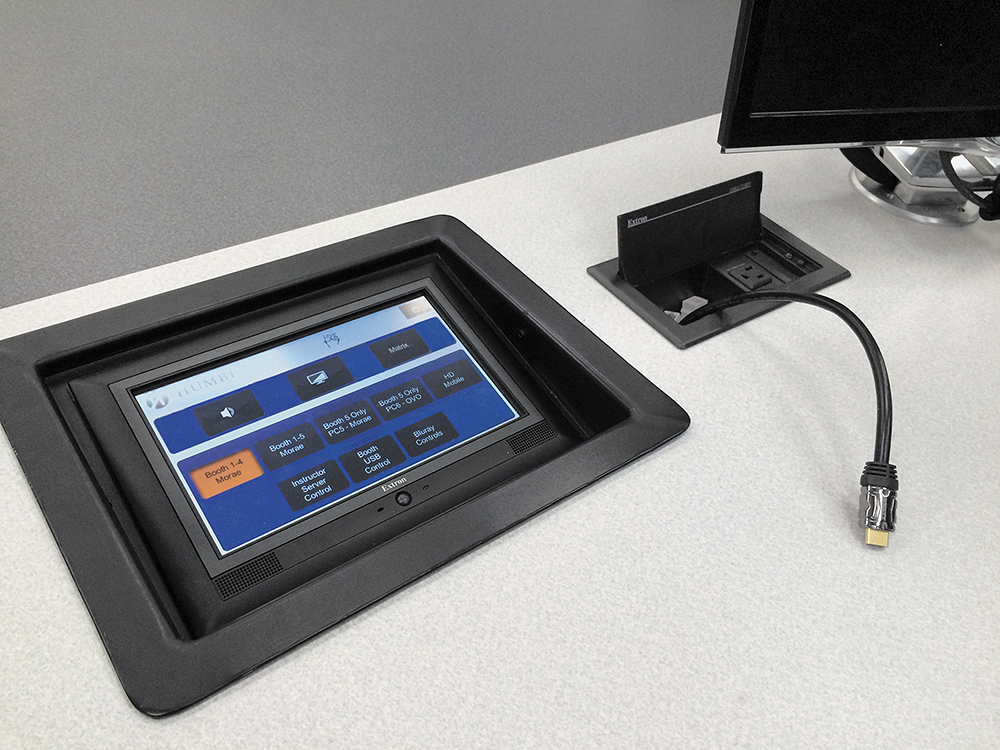
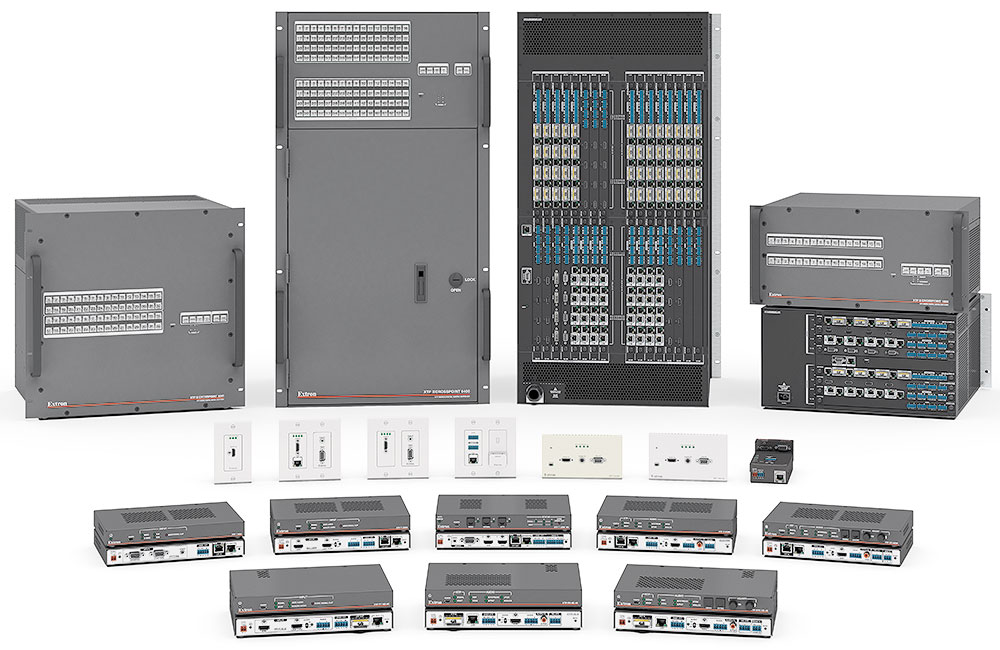














 Chrome
Chrome
 Firefox
Firefox
 Edge
Edge
 Safari
Safari